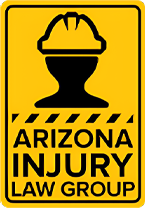Using Marijuana as a Painkiller in Arizona What You Need to Know About Buying and Using It

A recent study showed that states providing access to legalized recreational marijuana had a significant decline in opioid-related deaths, up to 35 percent from previous years when none was available. To be more precise about the statistics, it is those states who provide access to legal dispensaries where it can be purchased, who have lower rates of opioid deaths. For medical marijuana usage, the drop in opioid deaths ranges at nearly 25 percent.
As the study points out, the study-reviewed population is much more significant when it comes to aligning results with recreational marijuana laws (RML) than that of the medical marijuana laws (MML). The data for the study of 29 states and the District of Columbia, comes from three sources:
- Mortality data from the Center for Disease Control’s National Vital Statistics System – 1999 to the end of 2017,
- Demographic data of income, race, ethnicity, gender, age groups, and state population from the U.S. Census, and
- Unemployment rates from the Bureau of Labor Statistics. Download the study here.

As can be expected, there are those researchers who think the study is not accurate about the real statistics to this issue. It is also important to remember that legalized marijuana, recreational or medical, and its use, is still in a state of infancy when it comes to collecting meaningful data.
One assumption for the data results is that access to legalized marijuana for both recreational and medical uses, allows users to drop away from buying opioids on the black market to kill the pain. If users can get marijuana, the product would be legal and verified as not having been altered in any way along the path of production. On the black market, one has no idea what the product will be like, especially if altered. Even the sellers do not always know for sure about the product. But this is only one assumption without data to verify this.
WHAT YOU SHOULD KNOW ABOUT ARIZONA LAWS AND THE DEPARTMENT OF HEALTH SERVICES
On August 27th, 2019, Senate Bill 1494 goes into effect, which provides a two-year license on any application for a qualifying patient, designated caregiver, or non-profit medical marijuana dispensary agent. However, you must submit the application after that date, not before. If you must renew or apply before that date, then you will only get a one-year license. You must renew it again in 2020, upon which you will get a two-year license.
The use of medical marijuana is legal in Arizona as of 2010, but marijuana for recreational use is still illegal. So, if you are not one of the 193,000 Arizona residents carrying a card from the Department of Health Services in Arizona, then none of this information will do you much good.
But if you are filing a medical claim for either yourself or another member of the family, then the above information is critical. Here are some of the conditions where the use of medical marijuana can apply.
| Cancer | Cachexia (wasting syndrome) |
| Human immunodeficiency virus (HIV) | Severe, chronic pain |
| Crohn’s disease | Severe nausea |
| Amyotrophic lateral sclerosis | Seizures (including epilepsy) |
| Hepatitis C | Severe muscle spasms, and more. |
Check out this website for more information on getting your medical marijuana card.
If you need help with your workers’ compensation claim, call us at once for a consultation. We can help. (480) 300-7273.
Get Help Today
Call Immediately For A Free, No Obligation Consultation And Let Us Help You Put Your Life Back On Track. Let Us Help You
Regain Normalcy And Stability Again. We Want To Help You Get The Benefits You Need And Deserve!


